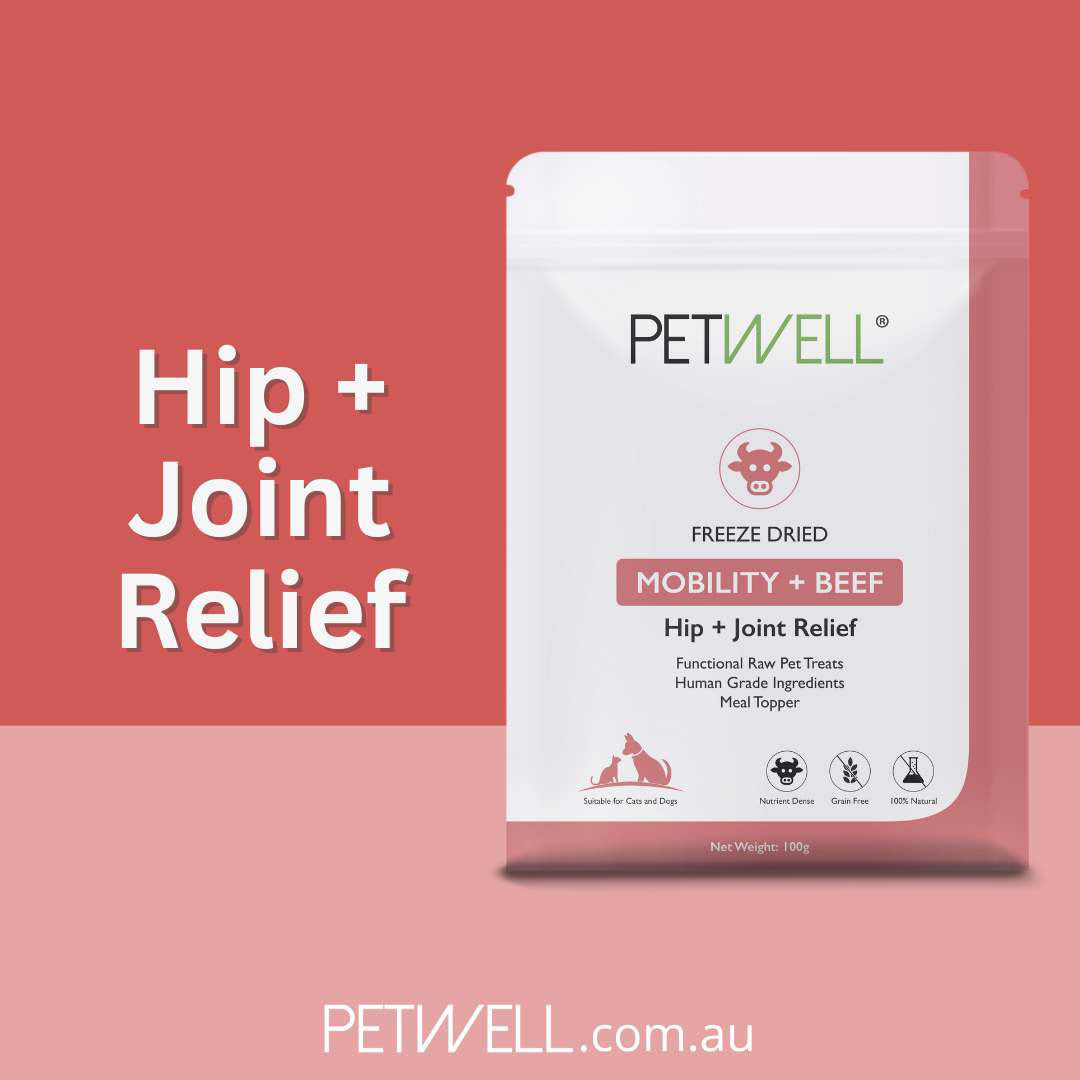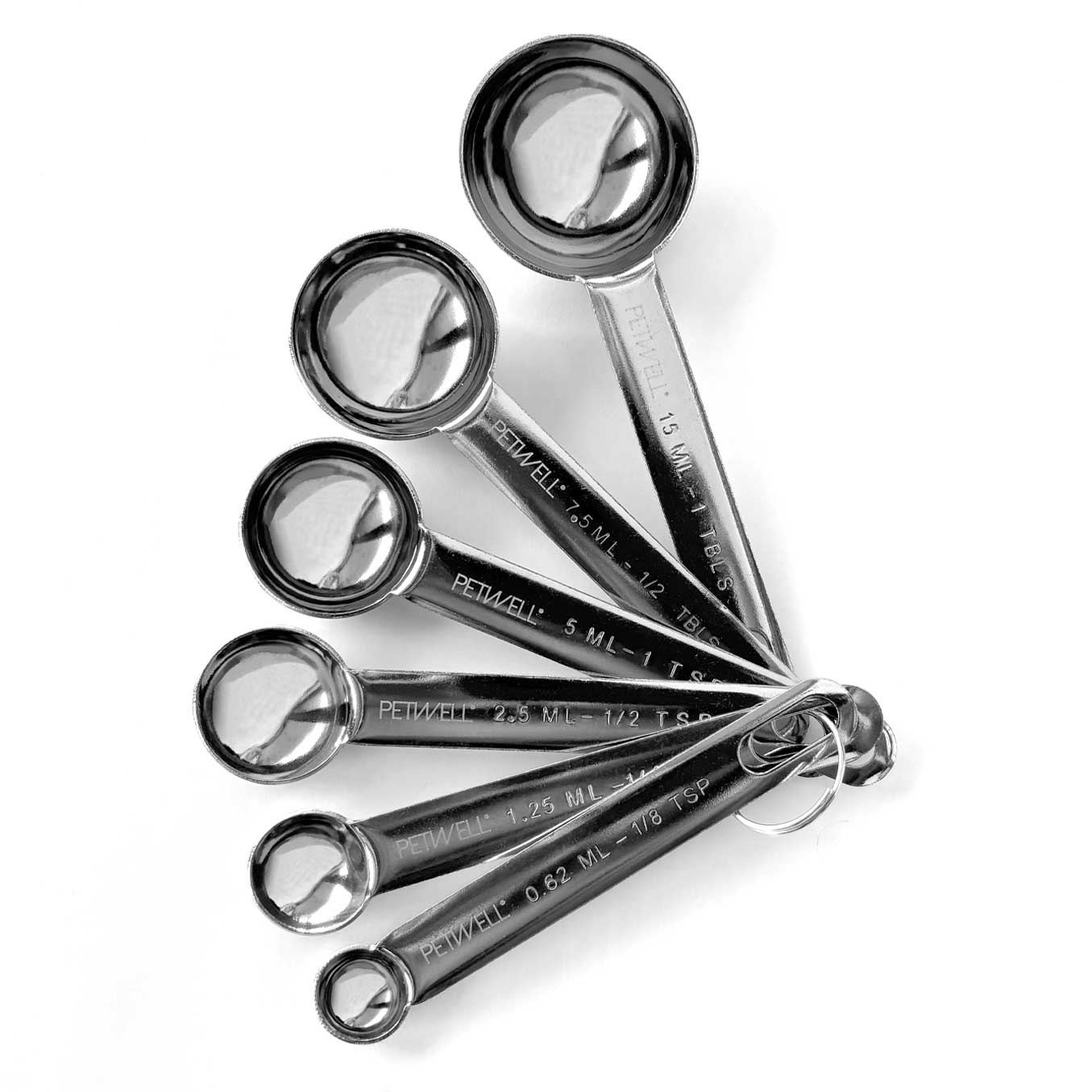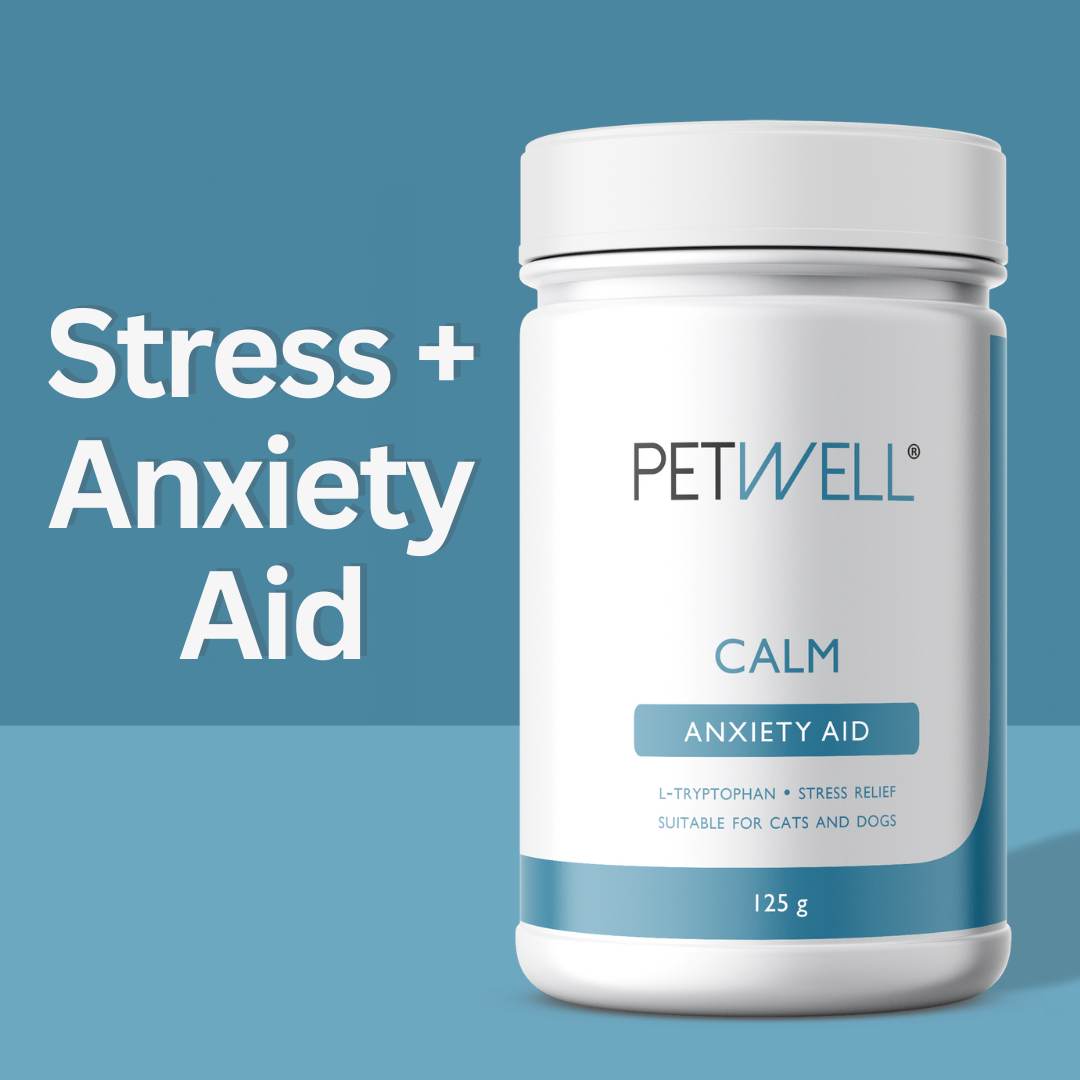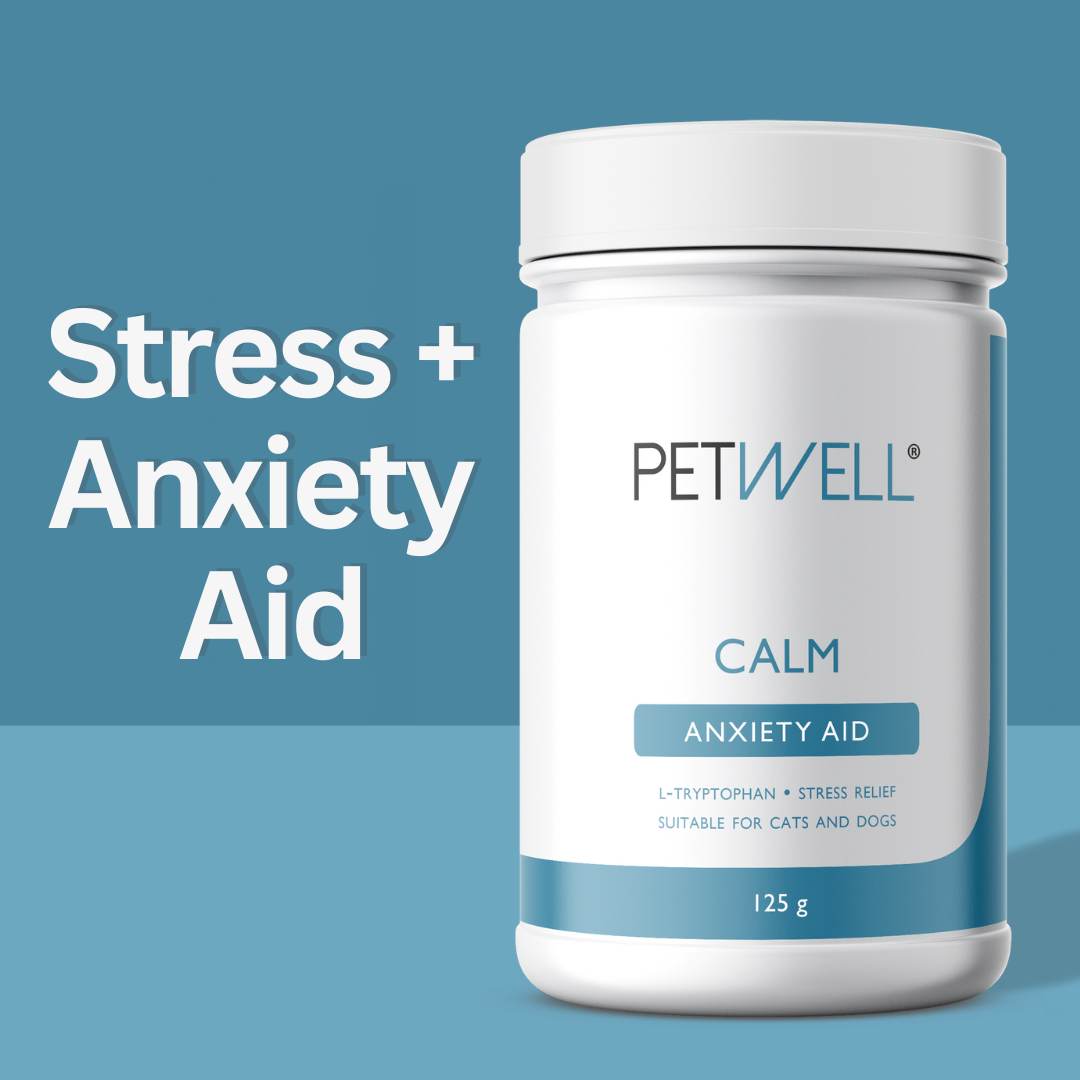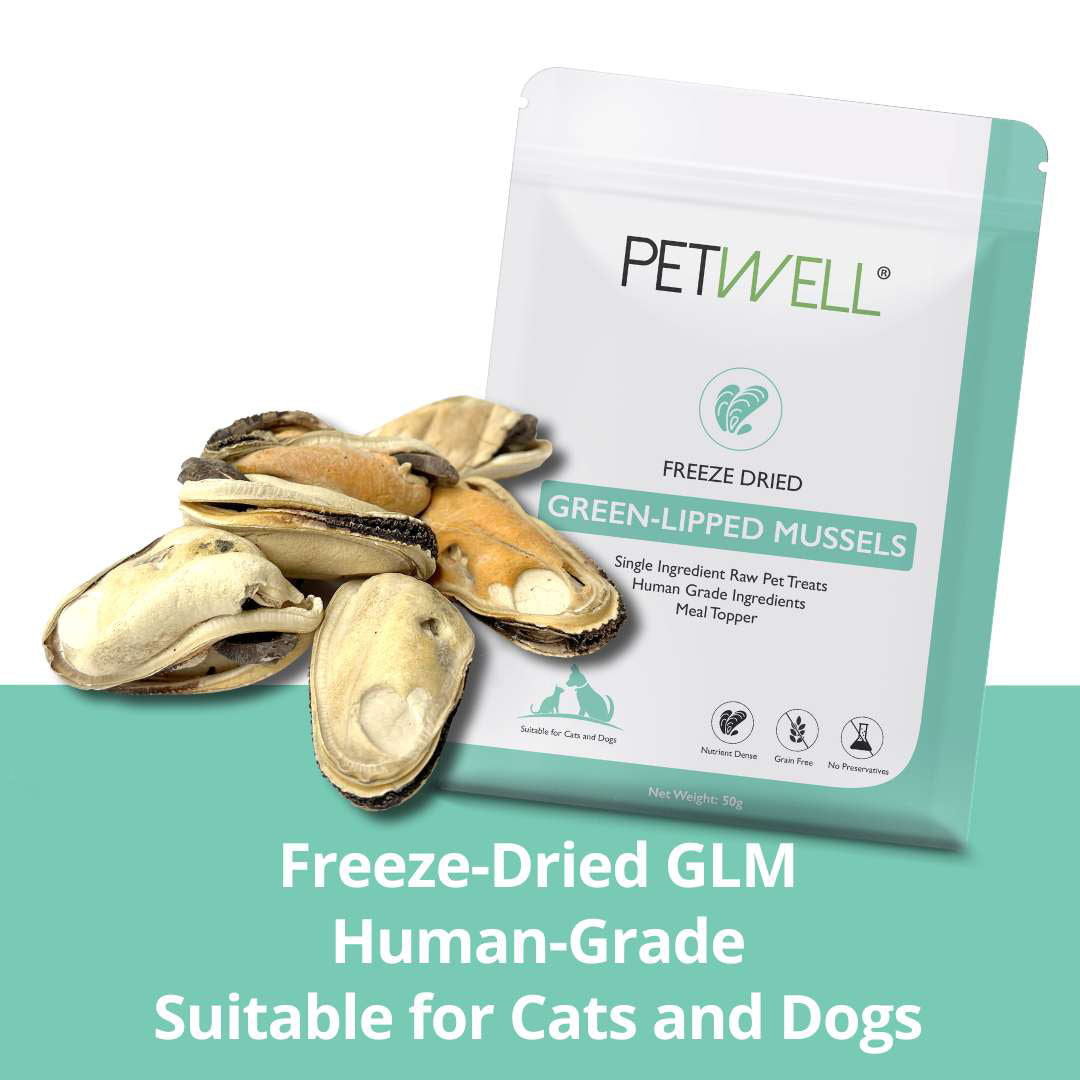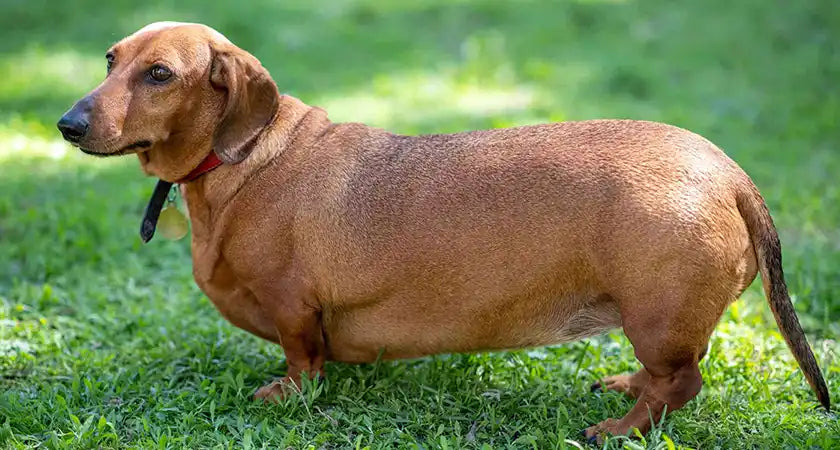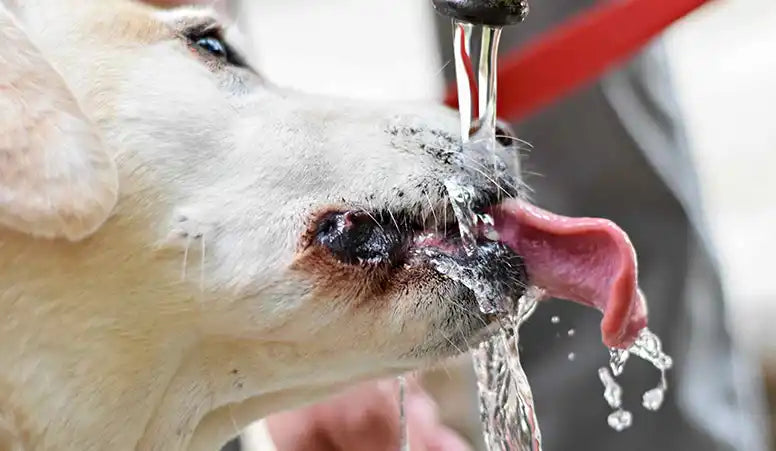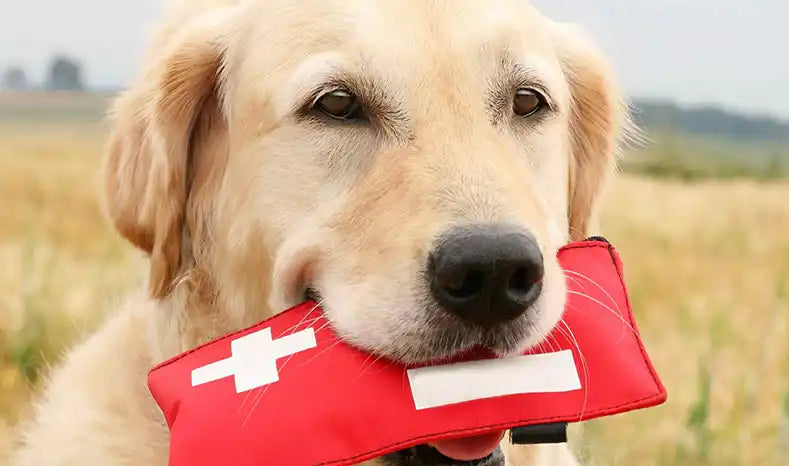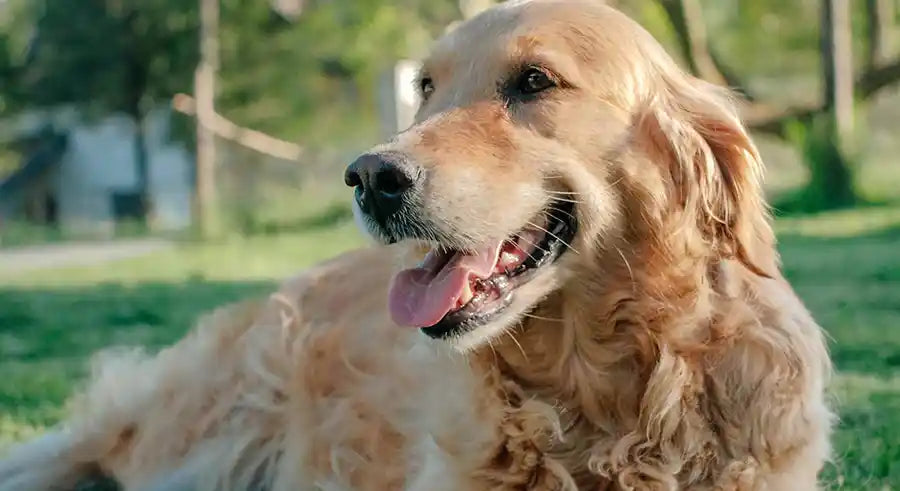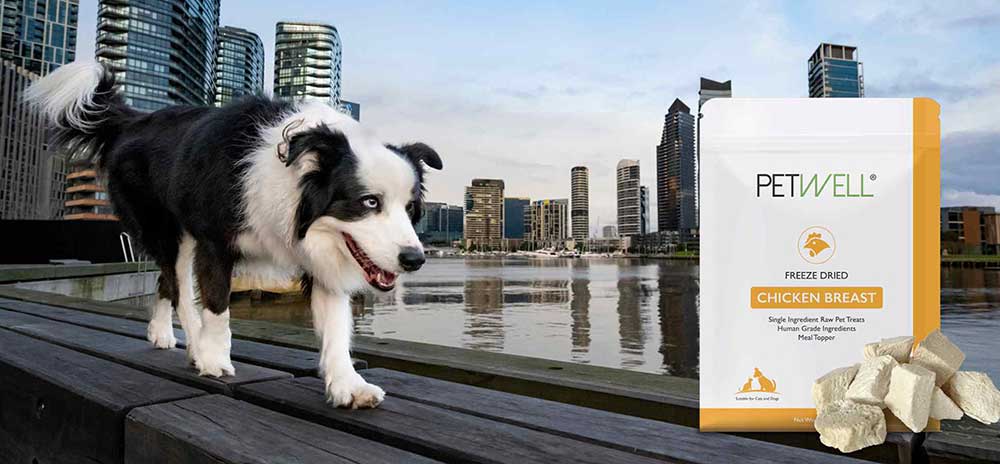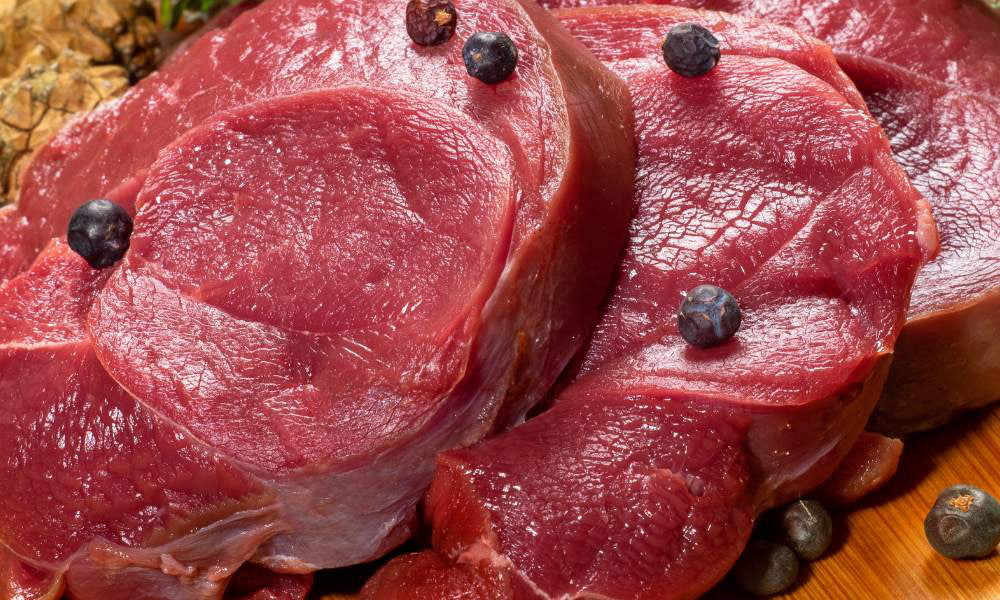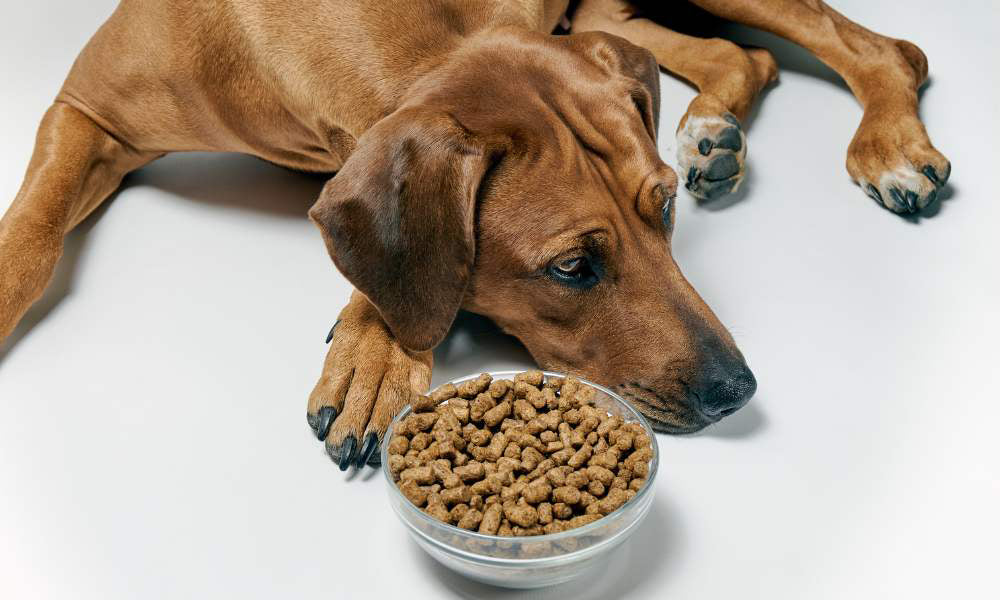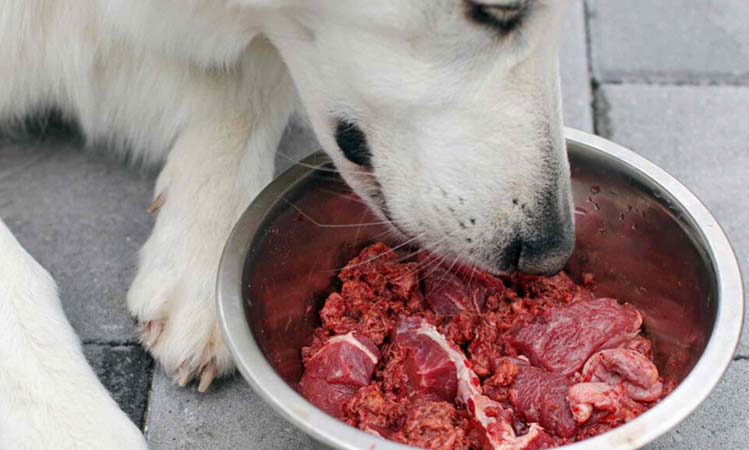We are here to make help keep your pup in top shape!
Want your dog to live longer, move easier, and feel amazing? Keep them at a healthy weight. The easiest way to track it is the Body Condition Score (BCS), a simple check you can do at home, no vet coat required.
What is a Dog Body Condition Score (BCS)?
A Dog Body Condition Score is a 9-point system vets and owners use to tell if a dog is underweight, ideal, or overweight. Scores of 4 or 5 are perfect for most breeds.
PetWell tip: Think of it like your dog’s wellness report card, quick, easy, and a great early warning system for health changes.
BCS scale:
- 1–3: Underweight – visible bones, little fat, low energy.
- 4–5: Ideal – defined waist, ribs felt under light fat, good muscle tone.
- 6–9: Overweight – no waist, ribs hard to feel, rounder body.
A BCS of 4 or 5 is usually ideal.
How Do I Check My Dog’s BCS at Home?
Check your dog’s shape from above and the side, then feel for their ribs. You should see a waist and feel ribs under a thin layer of fat.
Step 1: Look
- Top view: Waistline between ribs and hips.
- Side view: Tummy tucks upwards.
- Front view: Chest wider than belly.
Step 2: Feel
- Ribs should be easy to feel under light fat.
- Waist should gently taper from ribs to hips.
Do this monthly, it’s easier to prevent weight issues than fix them.
Dog Body Condition Score chart showing scale from 1 to 9 with examples of underweight, ideal weight, and overweight dogs, PetWell healthy weight guide.

The PetWell Dog Body Condition Score (BCS) helps you check if your dog is underweight, ideal, or overweight at home.
Why Does My Dog’s Weight Matter?
A healthy weight means stronger joints, better heart health, fewer vet visits, and more happy years together. Overweight dogs risk arthritis, diabetes, and heart disease. Underweight dogs risk muscle loss, poor immunity, and low energy.
Breed & Size Weight Guide
While the Body Condition Score (BCS) is the best way to check if your dog’s at a healthy weight, it also helps to know the average weight ranges for their size category. These ranges aren’t strict rules, every dog’s build, muscle tone, and metabolism are different, but they’re a handy starting point.
Here’s the PetWell weight chart by size:

This chart gives a general idea of healthy weight ranges for each dog size. Always combine it with a BCS check for a true health picture.
Average dog weight by size:
- Toy: Up to 5kg
- Small: 5–11kg
- Medium: 11–22kg
- Large: 22–45kg
- Giant: 45kg+
PetWell tip: Don’t panic if your dog falls slightly outside these numbers, a stocky, muscular Staffy will weigh more than a lean Whippet of the same height. That’s why shape and feel (BCS) matter more than just the number on the scales.
How Can I Help My Dog Lose Weight?
Feed for their ideal weight, swap processed treats for natural ones, and increase daily exercise.
PetWell plan for weight loss:
- Vet Check First – Rule out health issues.
- Portion Control – Measure every meal.
- Balanced Food – Nutrient-rich, not calorie-heavy.
- Healthy Rewards – PetWell freeze-dried treats or MOBILITY + BEEF functional treats for joint support.
- Daily Movement – Walks, fetch, playtime.
- Track Progress – Aim for slow, steady loss.
As every dog is unique, consulting with a qualified pet nutritionist can be useful in establishing an appropriate meal plan for your dog’s age, breed, and specific needs.
How Can I Help My Dog Gain Weight Safely?
Give high-quality food, feed more often, and use supplements to help them absorb nutrients.
PetWell plan for healthy weight gain:
- Vet First – Check for illness or nutrient malabsorption.
- Protein & Healthy Fats – Support muscle and energy.
- Frequent Meals – Smaller portions, more often.
- Gut Health Support – PetWell DIGEST supplement to improve absorption.
- Slow & Steady – Avoid stressing organs with rapid gain.
PetWell Tip for Weight & Wellness
Weight isn’t just about looks, it affects your dog’s gut, immunity, and mobility.
- Overweight? Protect joints with MOBILITY + BEEF functional treats.
- Underweight? Improve digestion and nutrient use with DIGEST supplement.
- All dogs: Reward with freeze-dried treats, real meat, no nasties, and tail-wag approved.
Summary
Keeping your dog at a healthy weight is one of the best things you can do for their health and happiness. Using the Body Condition Score (BCS), a simple 1–9 scale you can check at home, helps you spot if your pup is underweight, ideal, or overweight.
FAQs About Dog Weight Management
Q: How do I tell if my dog’s overweight?
Look for a waist from above and feel for ribs under light fat. No waist and hard-to-find ribs means they may be overweight.
Q: How often should I check?
Once a month keeps you ahead of small weight changes.
Q: Can treats cause weight gain?
Yes. Keep treats to under 10% of daily calories and choose natural options like PetWell freeze-dried treats.
Q: Should puppies have the same BCS as adults?
Yes — aim for 4 or 5, but growing pups may look rounder while still being healthy.
Q: How much exercise does a dog need for weight loss?
At least 30–60 minutes a day, adjusted to age and breed.
Disclaimer: The entire contents of PetWell emails and website are not to be taken as medical advice. The team at Pet Squad Pty Ltd trading as PetWell encourages you to make your own pet health care decisions based on your research and in partnership with a qualified pet healthcare professional.
Posted By Ayda Hornak - Trained in Canine Psychology and Natural Animal Nutrition Care


